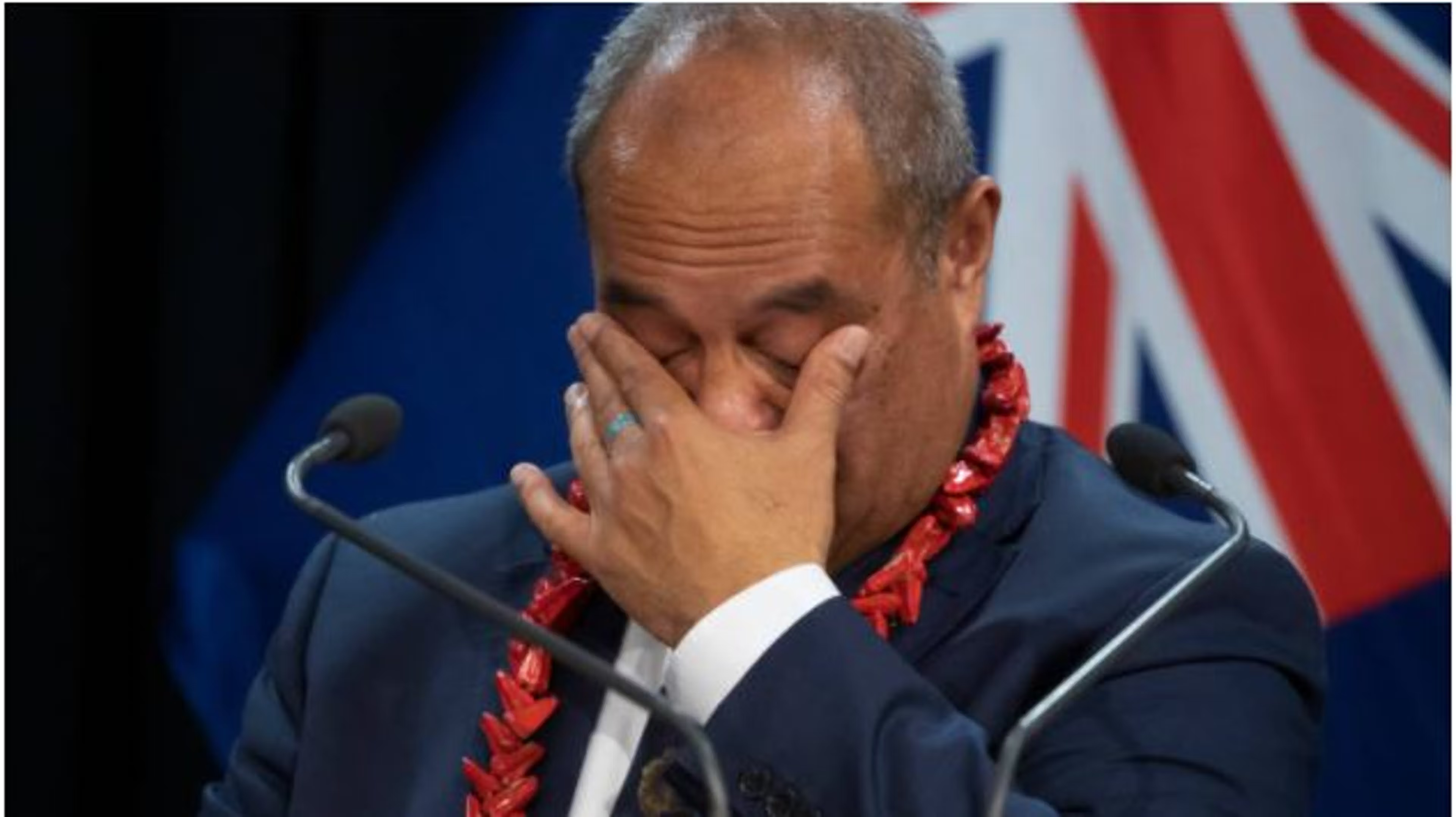

An emotional Pacific Peoples Minister Aupito William Sio talks about his personal experiences of the 1970s dawn raids. Photo / Mark Mitchell
Photo / Mark Mitchell
Peter Fa'afiu: Open discussion on Dawn Raids important for all sides
A response to Richard Prebble's claims of a 'bogus' apology




Visa-free Pacific-travel push splits Parliament as ACT holds back

'Keep the eyeballs on the game': All Blacks legend backs Super Rugby shake-up


A.R.T sets new Pacific music pace with ‘First Thursday’ releases


Visa-free Pacific-travel push splits Parliament as ACT holds back

'Keep the eyeballs on the game': All Blacks legend backs Super Rugby shake-up
This New Zealand Herald article is shared with permission.
By Peter Fa'afiu
OPINION
I respect Richard Prebble (NZ Herald, June 23) and welcome his recent opinion piece on the Dawn Raids apology.
His connection and advocacy for Pasifika diaspora communities and those in the Pacific region, over many decades, is well known.
An apology is very serious, no matter the form. It is not about the deliverer of the apology but the receiver of it. Sometimes it's not about the political or policy consequence but the words themselves.
In its essence, it is an acknowledgement of failure. Richard Prebble, in his opinion piece, highlights examples of those failures.
All of the "Wellington system" takes its Pasifika support for granted. Politicians of Pasifika descent discover that when they "return" to their communities as they depart the safety net of the "Beltway".
The advocacy for an apology has been years in the making. Wellington has now taken notice. Whether it is a political diversion or otherwise, I don't necessarily care.
My grandfather was caught in the dragnet. He died in 1995. The memories of his experience were both emotional and pragmatic. Like all migrants, he understood that policies change. However, it was society turning on him, empowered by politicians at the time, that was traumatic.
Each Samoan or Tongan family will have their own experience. The description of that experience belongs to them. Some will call it traumatic. Others, like myself, have used it to ensure my children are prepared for a much more complicated world than 50 years ago.
Regretful acknowledgement of an offence or failure is mana-enhancing for both deliverer and receiver. On behalf of my grandfather, I will accept the words when they are delivered with a full heart.
History is important. Highlighting a racist government-sanctioned policy from the past is about ensuring such policies do not exist currently or in future.
If there is contradiction currently in our immigration policies then our democratic system gives voters the opportunity to respond.
I do not think this is a diversion. The risk for Government is far too high for that. Any spin doctor would likely caution against such an apology. So it's an emotional decision. I'm okay with that.
Highlighting the failure of 50 years ago only reaffirms the Pasifika statistics of 2021 where for those communities, homelessness, high unemployment, poor health and education achievement are still significant challenges.
An inquiry could be held. Advice from the Solicitor General could be provided. Engagement on a process of compensation or change of policy could be developed.
However, the more important outcome of this apology is the education of current and future New Zealanders of these policies in our history. Open discussion of these is evidence of a maturing society.
Prebble's specific examples reaffirm the importance of this period being animportant part of the education curriculum. The lens of all who participated in the development and implementation of the policy will be important.
There is a Samoan phrase – Ia malu le vai i lou finagalo. May your mind be like cool water. To me, this about the acceptance of a challenging past and making a stand as to how to move forward.
Twenty-three years after my grandfather's experience, I was the first in my extended family to attend university. Twenty-eight years after, I joined the Ministry of Foreign Affairs and Trade, serving my country for eight years. Thirty-eight years after, I become a senior executive in a Crown company, and this week – 47 years after – I was accepted into the Institute of Directors' mentoring programme for future directors of large commercial boards.
I am confident my children will serve our nation and communities with distinction.
My mind is cool water.
Tiumalu Peter Fa'afiu is an independent director of a number of organisations, including chairman of the National Pacific Radio Trust